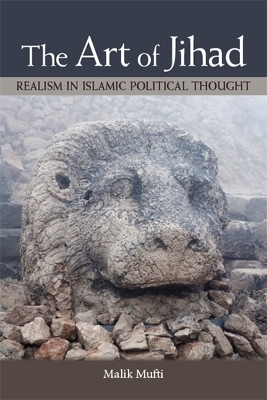
The Art of Jihad
Realism in Islamic Political Thought
Seiten
2020
State University of New York Press (Verlag)
978-1-4384-7636-0 (ISBN)
State University of New York Press (Verlag)
978-1-4384-7636-0 (ISBN)
Identifies and traces the evolution of a forgotten “realist” tradition in medieval Islamic political thought, and considers the prospects for its revival in the context of the contemporary Middle East.
Now all but forgotten, there exists within medieval Islamic political thought a coherent "realist" tradition analogous to its Western counterpart. In The Art of Jihad, Malik Mufti begins by analyzing contemporary debates on jihad designed to highlight the lacuna occupied by realism in other cultures. He explicates the features of medieval Islamic realism; those it shares with realism everywhere—a focus on power, for example, or the ubiquity of human conflict—but also those features that are distinctive: its insistence on the political centrality of religion, its rejection of scientific certainty, its valorization of hierarchy, and its adherence to empire as the optimal ethico-political framework. These features are fleshed out through the writings of medieval political thinkers such as Ibn al-Muqaffa`, al-Jahiz, and the anonymous author of a seminal military manual, as well as political philosophers such as Ibn Rushd and Ibn Khaldun. Finally, Mufti explores the prospects for a revival of Islamic realism in the context of the political and intellectual upheavals currently besetting the Middle East.
Now all but forgotten, there exists within medieval Islamic political thought a coherent "realist" tradition analogous to its Western counterpart. In The Art of Jihad, Malik Mufti begins by analyzing contemporary debates on jihad designed to highlight the lacuna occupied by realism in other cultures. He explicates the features of medieval Islamic realism; those it shares with realism everywhere—a focus on power, for example, or the ubiquity of human conflict—but also those features that are distinctive: its insistence on the political centrality of religion, its rejection of scientific certainty, its valorization of hierarchy, and its adherence to empire as the optimal ethico-political framework. These features are fleshed out through the writings of medieval political thinkers such as Ibn al-Muqaffa`, al-Jahiz, and the anonymous author of a seminal military manual, as well as political philosophers such as Ibn Rushd and Ibn Khaldun. Finally, Mufti explores the prospects for a revival of Islamic realism in the context of the political and intellectual upheavals currently besetting the Middle East.
Malik Mufti is Professor of Political Science at Tufts University. He is the author of Sovereign Creations: Pan-Arabism and Political Order in Syria and Iraq and Daring and Caution in Turkish Strategic Culture: Republic at Sea.
Acknowledgments
Transliteration Note
Introduction
1. Competing Visions of Jihad
2. Imperial Foundations
3. The Political Turn in Islamic Philosophy
4. Ibn Khaldun's Synthesis
5. Contemporary Echoes
Notes
Bibliography
Index
| Erscheinungsdatum | 15.05.2020 |
|---|---|
| Zusatzinfo | Total Illustrations: 0 |
| Verlagsort | Albany, NY |
| Sprache | englisch |
| Maße | 152 x 229 mm |
| Gewicht | 227 g |
| Themenwelt | Geschichte ► Teilgebiete der Geschichte ► Religionsgeschichte |
| Geisteswissenschaften ► Religion / Theologie ► Islam | |
| Sozialwissenschaften ► Politik / Verwaltung ► Europäische / Internationale Politik | |
| ISBN-10 | 1-4384-7636-1 / 1438476361 |
| ISBN-13 | 978-1-4384-7636-0 / 9781438476360 |
| Zustand | Neuware |
| Haben Sie eine Frage zum Produkt? |
Mehr entdecken
aus dem Bereich
aus dem Bereich
Herkunft, Blüte, Weg nach Osten
Buch | Hardcover (2024)
C.H.Beck (Verlag)
CHF 55,90
Von den Anfängen bis zur Gegenwart
Buch | Hardcover (2022)
C.H.Beck (Verlag)
CHF 47,60
warum die Religionen erst im Mittelalter entstanden sind
Buch | Hardcover (2024)
C.H.Beck (Verlag)
CHF 53,20


